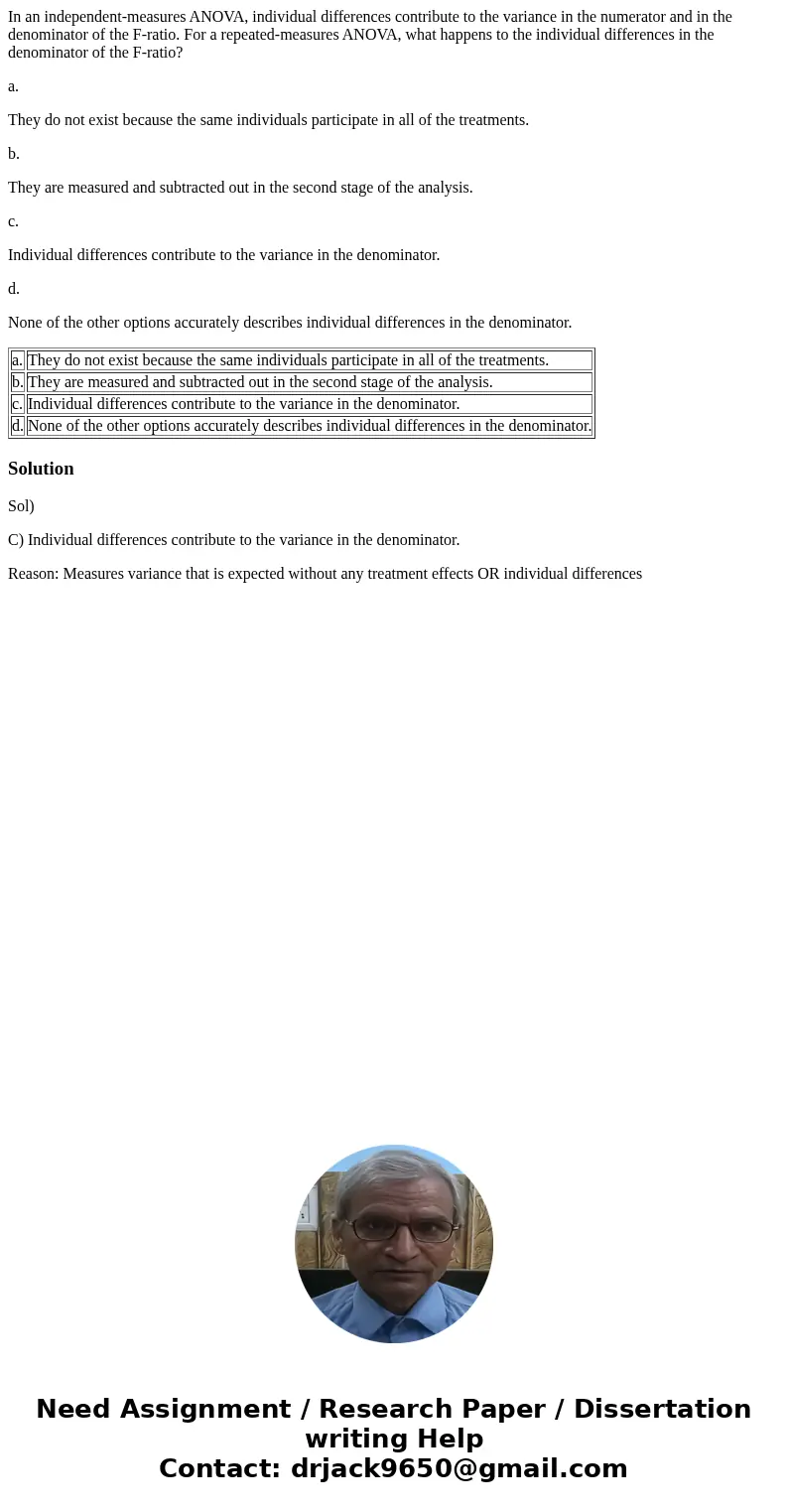In an independentmeasures ANOVA individual differences contr
In an independent-measures ANOVA, individual differences contribute to the variance in the numerator and in the denominator of the F-ratio. For a repeated-measures ANOVA, what happens to the individual differences in the denominator of the F-ratio?
a.
They do not exist because the same individuals participate in all of the treatments.
b.
They are measured and subtracted out in the second stage of the analysis.
c.
Individual differences contribute to the variance in the denominator.
d.
None of the other options accurately describes individual differences in the denominator.
| a. | They do not exist because the same individuals participate in all of the treatments. |
| b. | They are measured and subtracted out in the second stage of the analysis. |
| c. | Individual differences contribute to the variance in the denominator. |
| d. | None of the other options accurately describes individual differences in the denominator. |
Solution
Sol)
C) Individual differences contribute to the variance in the denominator.
Reason: Measures variance that is expected without any treatment effects OR individual differences

 Homework Sourse
Homework Sourse